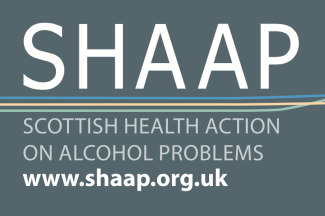Alcohol Interventions in Primary Care Settings: What Works, What Doesn’t and What's Next?

This week saw the seminar launch at Edinburgh’s Royal College of Physicians of two key reports on alcohol interventions in primary care settings published by the Scottish Health Action on Alcohol Problems (SHAAP) in collaboration with the University of Edinburgh, the University of Stirling and Newcastle University:
‘Practice and Attitudes of General Practitioners in the Delivery of Alcohol Brief Interventions in Scotland’ by Prof. Aisha Holloway & Dr Edward Donaghy
and
‘Financial Incentives for Alcohol Brief Interventions in Primary Care in Scotland’ by Dr Lisa Schölin, Dr Amy O’Donnell & Dr Niamh Fitzgerald
The harms of excessive alcohol consumption can be seen across Scottish society. In 2009, the Scottish Government set out to address these in ‘Changing Scotland’s Relationship with Alcohol: A Framework for Action’, in which Alcohol Brief Interventions (ABIs) figure prominently.
ABIs are short, evidence-based, structured conversations about alcohol consumption. They aim to encourage patients to think about the harmful health effects of alcohol and reduce their intake.
ABIs are usually carried out in primary care settings. However, clarity is still needed regarding their day-to-day delivery.
‘Practice and Attitudes of General Practitioners in the Delivery of Alcohol Brief Interventions in Scotland’ identifies main facilitators and barriers of effective ABI delivery in general practice. Below is a list of the report's main findings:
Facilitators:
- Nationally organised, locally facilitated training
- Necessary time to identity harmful alcohol consumption relative to the patient’s circumstances
- Financial incentives
- Suitable IT infrastructure
- Good links between GP and community support services
- Patient acceptance of problem behaviour
- Good GP/patient relationship
Barriers:
- Insufficient time with patient
- Poor IT infrastructure
- Combining alcohol support with drug support services
- Drinking at home
- Availability of cheap alcohol
- Low patient awareness of dangers of excessive consumption
- High levels of drinking regarded as ‘normal’ across Scotland
- Changes in patients’ personal circumstances
The key recommendations the paper offers include:
- National ABI programme should continue
- Legislation is needed to address price of alcohol, marketing and availability
- Investment in research into ABI evaluation is needed
‘Financial Incentives for Alcohol Brief Interventions in Primary Care in Scotland’ considers the evidence for using financial reward systems for ABIs in primary care settings in more detail.
It includes a literature review, analysis of such systems and interviews with patients.
Similarly to the first report, the study suggests there is an insufficient evidence-base for Scotland’s ABI programme, including for the use of financial rewards for ABI delivery, quality and patient outcomes.
For the authors, the current moment offers an important opportunity to remedy this as the Scottish government looks to update its alcohol policy. This, they propose, could also have a knock-on effect for alcohol abuse prevention and treatment policy decision-making globally.
Both reports can be downloaded by following the links below.